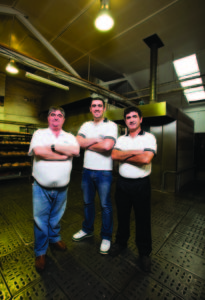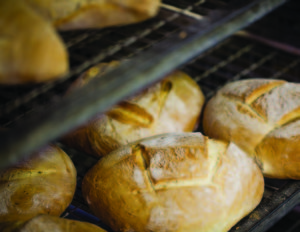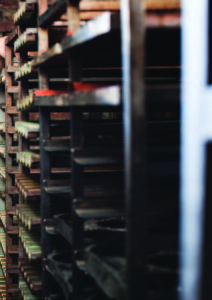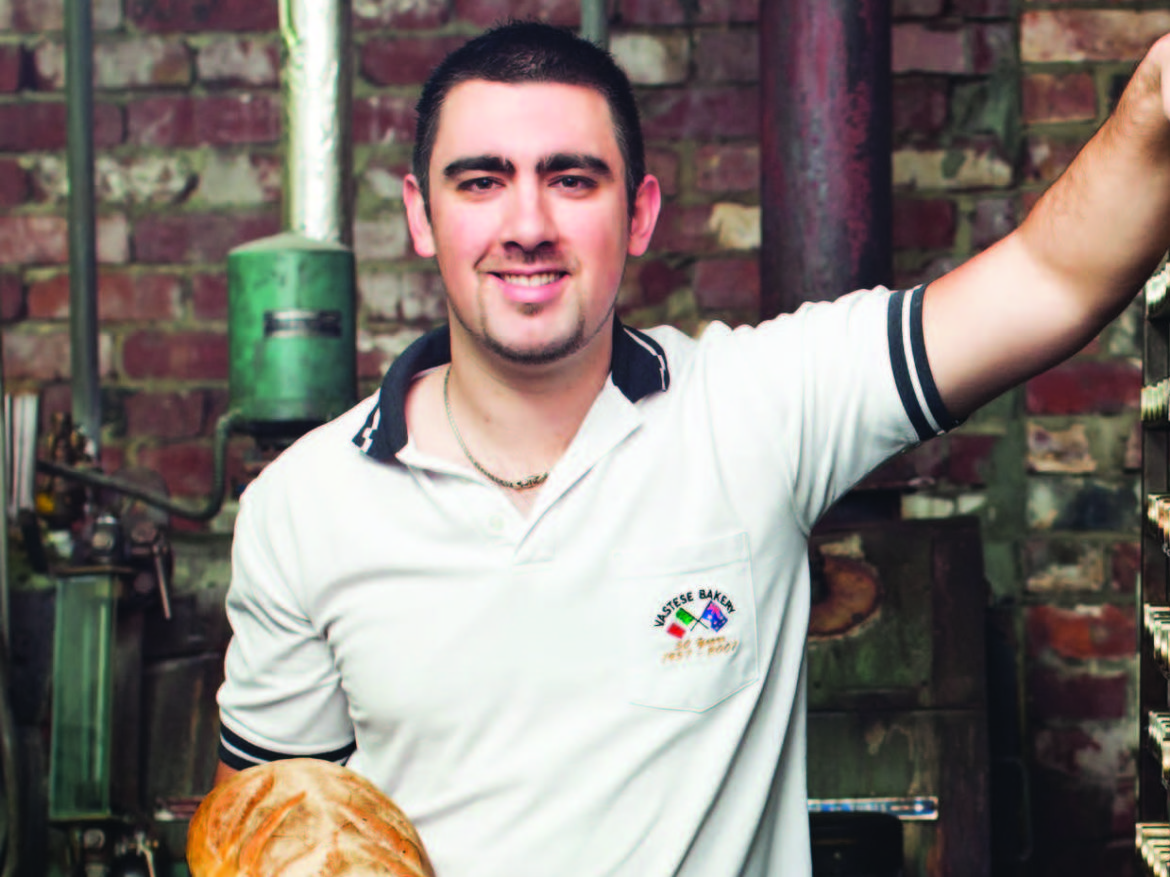With a 55-year family history, Vastese continues to make bread the way it should be – through old-fashioned techniques, hard work and pride.
When Giuseppe “Joe” Saraceni set sail for Western Australia in 1951, he was dreaming of a life filled with opportunity for his family.
Like many immigrants who came to our shores following WWII, Joe and his wife Lucia were no strangers to hard work. Life was tough, with the Saracenis struggling to make a decent living from their small farm in the Vasto region of central Italy.
Arriving in Fremantle with only a small suitcase in his possession, Joe immediately found labour work, saving every penny he could to repay the loan he’d taken out to fund his ticket on the Surriento. Once this loan was repaid, Joe sent money for Lucia’s subsequent passage to Australia.
Lucia gave birth to their first child, Antonio (“Tony”) on August 24, 1955. At this time, Joe was doing a bread run, purchasing bread daily from two bakeries and delivering it to customers. He paid six pence for the bread and sold it for around eight or nine pence (approximately eight cents today).

When their second son Luigi (“Lou”) was born on July 6, 1958, Joe was struggling with the quality of the bread he was delivering. Despite having no baking experience, he believed he could make better bread than what he was buying, so he searched for a property to rent in order to be able to produce his own. Joe went into partnership with Cesare Tanna and commenced making bread from the rental premises on Newcastle Street in Northbridge in 1958.
The partnership lasted just one year, with Joe and Lucia buying Cesare’s share of the business. A one-man band, Joe would work up to 36 hours straight – mixing, hand-moulding, baking and delivering – then repeating the process over again.
Vastese Bakery hired its first baker, Ermando Piscicelli, in 1959. Ermando worked for Joe until his retirement from full-time work in 1986, although he continued to mix dough each night until retiring completely in 1999.
In 1961, Joe purchased an old bakery at 120 Alma Road, North Perth, which had an old house beside it that was suitable to live in. In the early days, the bakery consisted of one mixer, two brick ovens, an oil fired double-decker oven and later another double-decker oven.
In 1967 Joe and Lucia purchased the house next door at 122 Alma Road for $9,000 and moved in straight away. They demolished the old house to make room for the rebuilding of the bakery, which cost $28,000 to make it what it is today.
In 1973, Tony commenced working for his father at the bakery. In 1980, Joe’s nephew Pasquale (known as Tony also) came to work for the bakery and is now the production manager. Lou, a motor mechanic by trade, joined the business as dispatch manager in 1988.
Over time, major changes took place in order to make the family enterprise what it is today. The ovens were changed from oil fired to natural gas in 1992 and in 1993 the boiler also changed over to natural gas. In 1993 the bakery installed an Italian-made natural gas fire rack oven at a cost of $27,000 and in 1994 computers were introduced into the office at a cost of $25,000. While computerisation cost the company a total of $100,000, it was undoubtedly a move that carried the business forward while others flailed in the new technological age.
Home deliveries ceased in 1995, and the following year Joe and Lucia sold the business to their sons, who renamed the company Vasbake Pty Ltd. Determined to build on their father’s hard work, Tony and Lou gave the business a complete plant and machinery upgrade at a cost of $200,000.
Today, the bakery operates using imported equipment from Italy and continues to bake traditional Italian-style bread using long fermentation techniques and state-of-the-art equipment, much of it imported from Italy.
In 2011, another major milestone was celebrated: the third generation of the Saranceni family entered the business, with Lou’s son Joe taking on the role of business development manager. Joe’s goal is to take the business to the next level with a modern edge on management, branding and distribution.
Sitting with his brother and nephew in Vastese’s bakery office, Tony speaks with immense pride about his father and the years of struggle and hard work he went through to build the family business from the ground up.
“Italians are tenacious,” he offers by way of explanation. “After all, you can’t live by bread alone.”
Lou agrees. “People say to me, ‘You always talk shop.’ I say to them, ‘Well, bakers are passionate, and you’ve got to be passionate to succeed in this business.”
This passion alone has played an integral role in seeing the company through tough times. Tony says the current economic climate has made things increasingly difficult not just for specialty bakers like themselves, but for the industry as a whole.
“We’ve been through tough times before,” he says. “Me and my brother, we’re from the old school, you know? We know what our parents went through to build [the business] up, and you just keep on going.”
Adapting to change has been one of the crucial factors in seeing the bakery survive challenging market conditions.
“Back in the ‘60s, we got our first divider – that was a boon for us,” Tony laughs. “And we progressed from that. We got computerisation, got rid of brick ovens, supermarkets started coming into the fray and we just adapted.
“Dad started out with a large continental loaf, a small continental loaf and one type of roll. Now we do something like 60 different varieties – sourdoughs, ryes, multigrains, pizza bases, focaccias. We’ve adapted to the market as it’s changed.’
The biggest metamorphosis came when the business ventured into the wholesale market following the decline of bread deliveries.
Vastese now supplies bread to a wide range of delis, cafes, restaurants, gourmet stores and supermarkets across the Perth metro area. It’s a competitive market that requires strict credit control and careful pricing consideration.
“Pricing has become very, very sensitive with our type of bread,” Tony says. “We’re 50 to 60 cents behind in our retail pricing for what we should be because you have to be very careful you don’t price yourself out.”


Dealing with supermarkets can also be challenging for small bakers who venture into wholesale.
“The biggest problem is trying to get paid,” Tony warns, “especially in this economic climate. We have very stringent credit control, which sometimes works against us. But the biggest benefit of supermarkets is the exposure – a lot of people shop there.”
While the wholesale component of the business is going strong and opportunity for further business is always knocking, Joe says they’re being careful not to put all their bread in one basket.
“We’ve seen too many bakeries go under from supplying all their products to Coles and Woolworths, then they get axed at the drop of a hat for something and there goes all their business. You’ve got to be careful on how you strike a fine balance with them.”
For this reason, the trio is committed to keeping open the company’s own retail business, which is located right within the rustic old bakery where the bread is made onsite. Here, customers can walk in off the street and see and smell the bread being taken out of the oven, which inevitably inspires a purchase.
Producing specialty gourmet breads using traditional techniques, Vastese is one of the few bakeries in the country that remains dedicated to a thorough fermentation process. Slaves to perfection, Vastese’s bakers ferment their doughs for the full four to six hours for the best possible flavour.
“When we first started, we were doing eight- to nine-hour fermented doughs,” Tony says. “Now you can’t do it because the ingredients we use are all formulated for no-time doughs, so we’ve had to adapt with those ingredients to keep doing fermented doughs. The most we can do now for a fermented dough is four-and-a-half, five hours.”
However, it was the removal of bromate from improvers in the early ‘90s that had the biggest impact on Vastese’s doughs.
“Now a lot of our yeast comes from China, and it’s very active yeast,” Tony explains. “The European dry yeasts are less active in a fermented process, which suits our bread better, but they’re more expensive.”
Asked about their future plans for the business, Tony laughs. “Well,” he says, “Me and my brother are looking at retirement. We’re both in our 50s… we’ll just get Joseph trained up and then sit in the background.”
Obviously used to the ribbing, Joe responds good-naturedly when the subject of the “succession plan” is raised.
“They’ll admit they’re old school, and that’s why the business has done so well,” he acknowledges. “You need that injection of old school along with the new to try and continue the business forward.”




COMMENTS